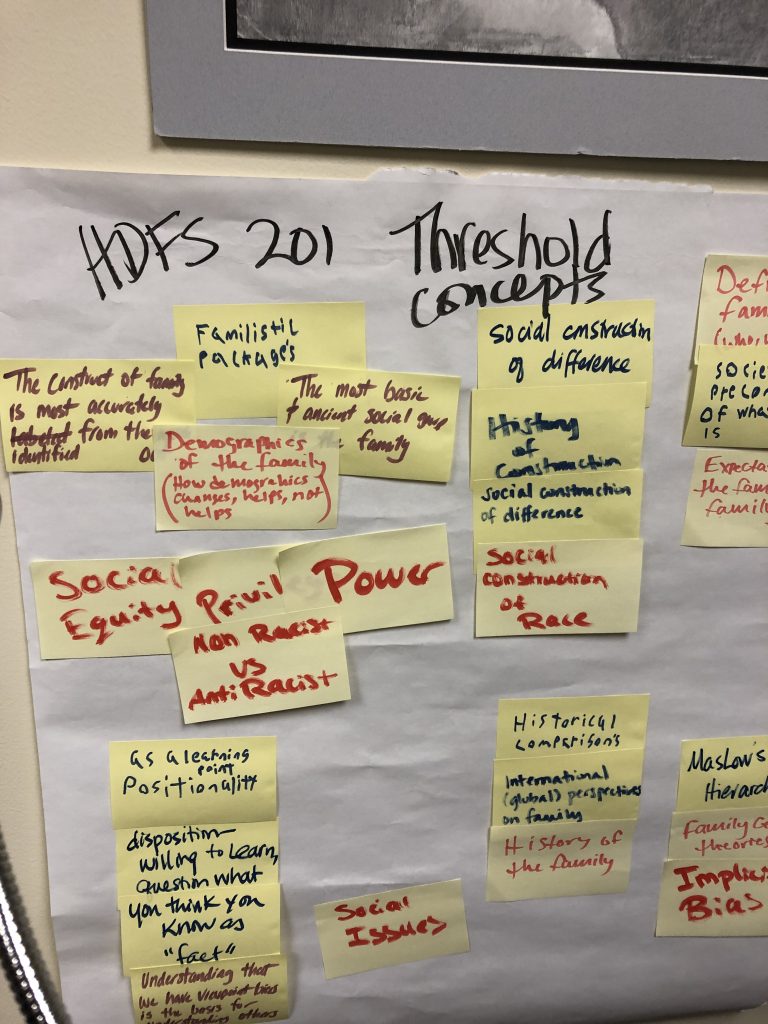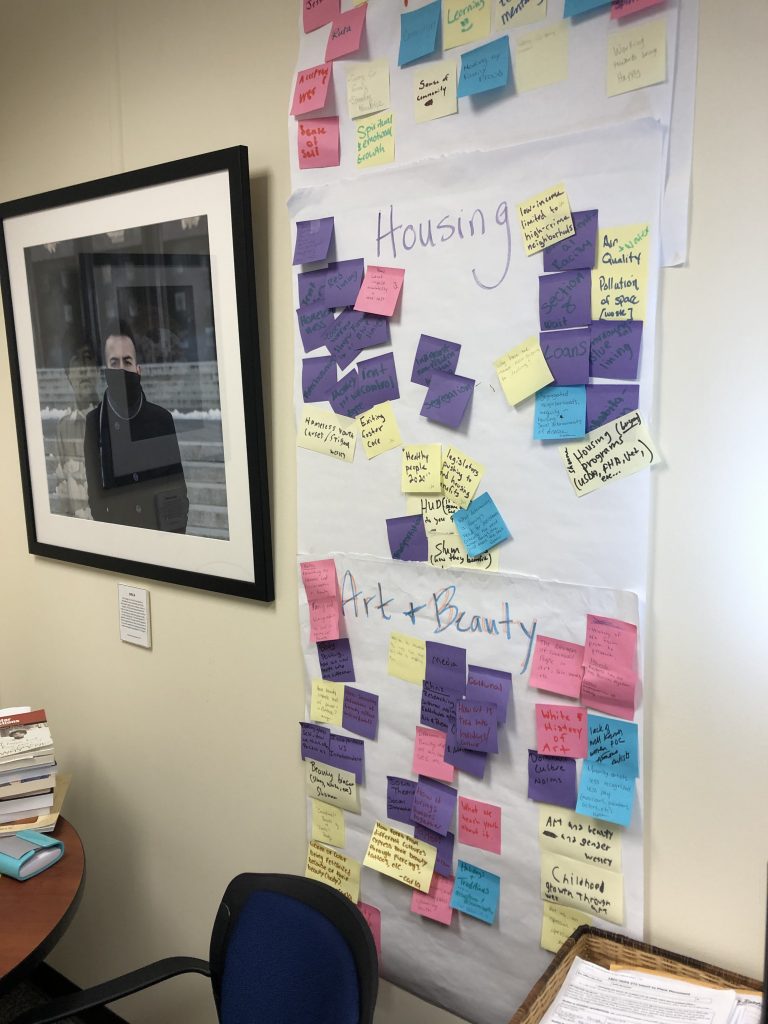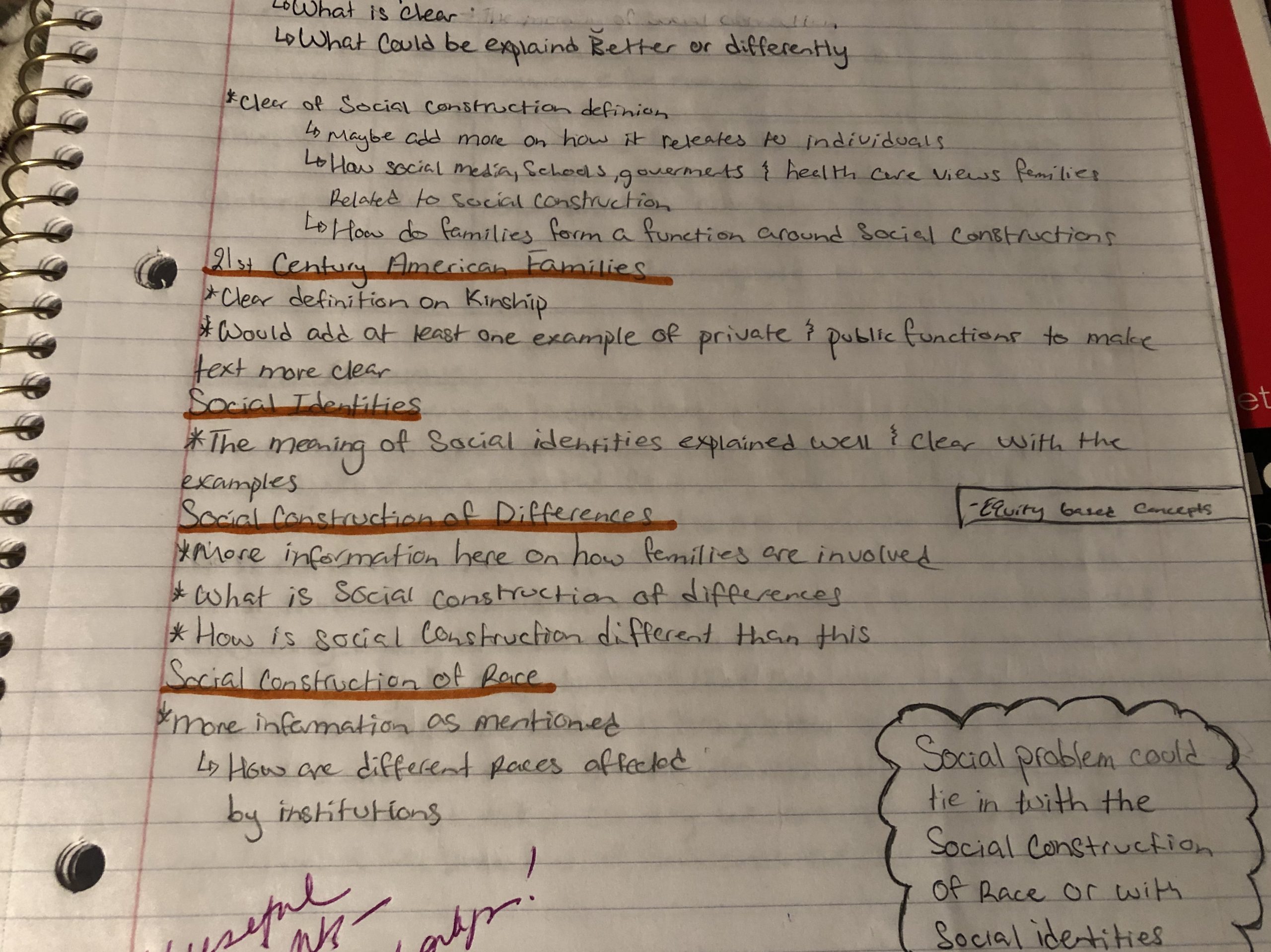Preface
Elizabeth B. Pearce
I’ve changed. Understanding how privilege, power, oppression, and discrimination overlap is life-altering. It humbles me to consider how much privilege I have and to wonder what families in the United States would look like if greater equity existed. Teaching a social justice class has been transformational.
In 2007-2008 I took a sabbatical and was exposed to sociology, family, and social justice course work at Oregon State University. During that time I studied with Dr. Alexis J. Walker, Dr. Richard Settersten, and Dr. Becky Warner. I began to teach Contemporary Families in the United States (HDFS 201), at Linn-Benton Community College (LBCC), which is a Difference, Power, and Discrimination course at both institutions.

My understanding continued to develop when I participated in the Difference, Power, and Discrimination Academy led by Dr. Nana Osei-Kofi at OSU. With the leadership of Dr. Katie Winder, DPD became institutionalized at LBCC. Colleague Matt Usner and I co-led the first DPD Faculty Learning Community in 2015. Continued learning is a core aspect of social justice learning. Just because I’ve taught about it for twelve years does not mean that I fully comprehend all of the complexities and depth of these concepts. I count myself among the learners among the community that I lead. Talking DPD teaching and learning alongside Isabelle Havet, Jane Sandberg, Lauren Visconti, Stephen Rust, Deron Carter, Christy Stevens, Verna Ourada, Matt Usner, Paul Hibbard, Joseph Jess, and Arfa Aflatooni is one of the privileges of teaching at LBCC.
Learning about privilege and oppression extends beyond the workplace. I am thankful to have family and friends who are willing to grapple with these concepts. Many dinner conversations with my daughters Rachel and Sarabeth and my partner Liz Baker have been devoted to dissecting the ways that we experience and observe institutionalized power and discrimination. So many hikes and walks have been absorbed by my own thinking or conversations about social justice with friends. Whatever I am reading, including my favorite thrillers, are seen through the lens of equity. Once you’ve seen it, it can’t be unseen.
My greatest pleasures, challenges, and growth come from my work with LBCC students. I hear your questions; I read your articulation of concepts; I listen to your experiences being discriminated against; I support your work to comprehend your own privilege; I strive to understand the oppression you have experienced but perhaps did not have the language to describe. The greater my interactions with you, the better teacher I become.

Through my interactions with students and colleagues, it became evident that the commercial text we were using did not fully support students in meeting the course outcomes. Searches over the past five years did not reveal an existing openly licensed (free to users to read, remix, or reuse) text. With funding and support from LBCC, I undertook to facilitate an open pedagogy project and write a new text. This new text takes an interdisciplinary approach that more fully supports understanding the interaction of society, institutions, privilege, and oppression.
There is strong instructional and budgetary support for creating open educational resources (OERs) that are free to students at LBCC. Certainly making knowledge more accessible makes college more equitable. Going beyond by involving student authors embeds equity within the actual text by facilitating the expression of diverse voices. Michaela Willi-Hooper, the OER Librarian, was instrumental in supporting this outcome. All three Deans who oversaw my work during this 18-month long project, Katie Winder, Oriana Mulatero Ferrando, and Meg Roland, provided additional support specifically so that students could be involved.
This openly licensed text approaches contemporary families from an equity lens and asks a question that more fully meets the Difference, Power, and Discrimination outcomes. “What do families need?” and “ How do society and institutions support or get in the way of families getting what they need?” In order to answer these questions, I included the voices of the consumers of this class. I asked, “What matters most to LBCC and OSU students when it comes to family needs?” This has shaped the content of the book; it is a far different book than I would have written alone. I wanted to emphasize diversity of viewpoint, experience, social identity, and voice. It was the best way I could think of to live the concepts of Difference, Power, and Discrimination.
It takes a lot of guts to help write a textbook when you are an undergraduate, even more if you are the first person in your family to attend college. The thirteen students who participated in this project have my utmost regard for their courage and their scholarship. Deep examination of institutionalized privilege, oppression and justice is challenging and painful. They brainstormed, questioned, researched, debated, outlined, drew, and wrote. Each one has their own personal connection to the needs of families and the inequities that families experience. They introduced and advocated for the inclusion of topics that have an immediate relevance to current students’ lives.

The book content was created from brainstorming and discussion sessions with the students, followed by research conducted by the student authors, librarian and contributor, Michaela Willi-Hooper, and myself. The brainstorming sessions conducted in person during the winter and via ZOOM in spring term were integral to expressing a diversity of voice. Without those sessions, my own perspective, that comes from experiencing more privilege than most students, would override topics and viewpoints that student families experience and care about. The three images here in the preface come from student brainstorming and journaling sessions. Much of the book is written either by me or via collaborative efforts with students; you will see groups of names listed on those chapters where we collaborated. In the Justice chapter, I wanted you to read the students’ words unfiltered; you will see the individual authors credited. I hope that future students will add to this chapter.
One of the best parts of an openly licensed digital text is that it is a living document. While this has been one of the most invigorating experiences of my life, it is not over. I invite you to be a part of the future of this text. When the time comes to revise this text, I will be incorporating the suggestions of colleagues, students, and friends. When there is more funding available, additional chapters with topics like education and employment will be added. I look forward to the future of this book, to its contribution to understanding inequities that families face, and the knowledge that it inspires us to advocate for and improve structures and society.
–Elizabeth B. Pearce

